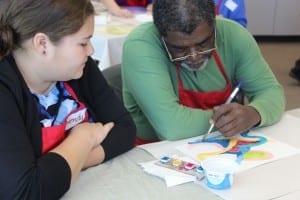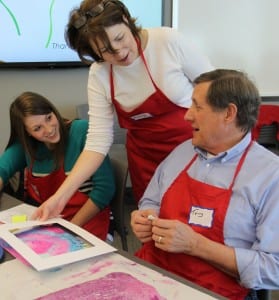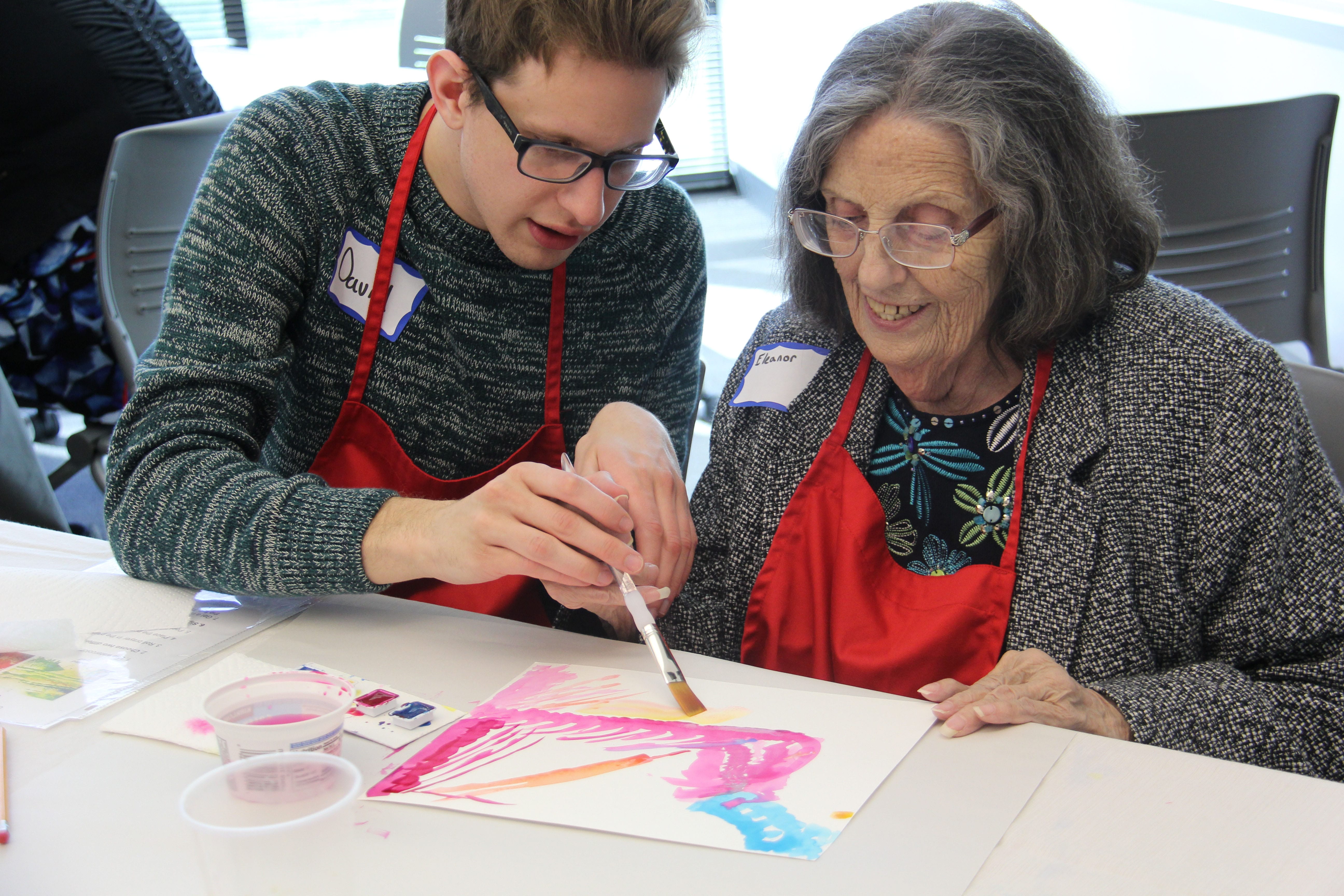Reading time: 2 minutes
On most Wednesday mornings, a small group gathers in Maryville University’s Walker Hall to make art, chat, and drink coffee. While their creative pieces are unique, these artists have one thing in common: they all have Alzheimer’s disease.
Participants are part of the Opening Minds Through Art (OMA) program, held in partnership with the occupational therapy and rehabilitation therapy programs in Maryville University’s Walker College of Health Professions, and the Alzheimer’s Association, St. Louis chapter. Although the fall session has ended, the program begins again in February 2016. 
An exhibit of works created in the Opening Minds Through Art program during the fall session will be held from 6-7:30 p.m. on Wednesday, Dec. 9, in the second floor foyer of Walker Hall. The show is free and open to the public.
Ashlyn Cunningham, OTR/L, assistant professor of occupational therapy, facilitates the program. Cunningham has pursued research of mental health issues and older adults for the past five years. It’s important to understand that people with dementia still have abilities, even if they can’t remember things, she says. “They’re still people,” Cunningham says. “They can still socialize and relate.”
“It’s about the relationship aspect, and the one on one time with a college student. Being able to create something unique is fulfilling.”
Each week, participants pair with student volunteers to create something. Usually the works involve paint and paper. All of the projects are abstract and failure free.
 The program is beneficial to participants in a number of key ways. “It’s about the relationship aspect, and the one on one time with a college student,” says Cunningham. “Also, being able to create something unique is fulfilling.” Clients are often surprised by what they are capable of doing and making, she says.
The program is beneficial to participants in a number of key ways. “It’s about the relationship aspect, and the one on one time with a college student,” says Cunningham. “Also, being able to create something unique is fulfilling.” Clients are often surprised by what they are capable of doing and making, she says.
The clients’ families—spouses in particular—benefit from the program, as well. “They love how much happiness it brings their loved one, but it also gives them an opportunity to connect with one another,” Cunningham says. “Although many are involved with the Alzheimer’s Association support groups already, the Opening Minds Through Art program allows a time for respite, conversation, and unstructured peer-to-peer caregiver support.”
 OMATherapy.H
OMATherapy.H